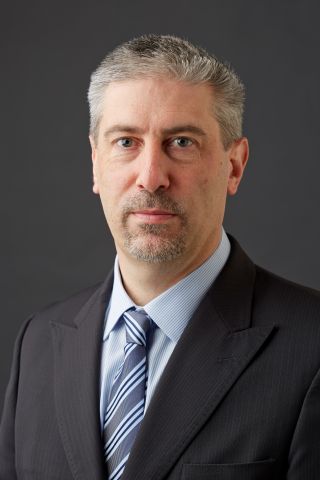Regenerative medicine ripe for commercial success
Regenerative medicine has great potential to create new therapies for people, and interest in the field is rapidly growing in Australia, says Associate Professor David Rhodes, new ARMI Leadership Advisory Board member.
“As Australia’s population ages, researchers, industry and governments are interested in supporting regenerative medicine to create effective therapies and manufacturing opportunities for Australia.”
David has spent his career looking for ways to tap into research discoveries to make products that help people.
Engaging industry and building relationships have always been major challenges for commercialisation, but David says effective networks help to generate effective translation of basic research into solving problems for people through creating opportunities for industry.
For David, one of the attractions of being on the ARMI Board is the opportunity to use his experience to help researchers build commercialisation opportunities in a strong research precinct, with critical mass of people and infrastructure.

“The groups at ARMI and Monash have a real desire to engage effectively with industry and to look at ways of commercialising research.”
His many years working with universities and researchers places him in an ideal position to help ARMI researchers build productive links with industry. He believes other ARMI initiatives such as the Centre for Commercialisation of Regenerative Medicine Australia (CCRM Australia) will help to extend those connections on an international level.
David says people in industry are focused on products and do not always have the luxury of accessing the diverse skill sets required for the development of new technologies in their company. On the other hand, researchers have somewhat more flexibility and are not as restricted, so they can apply their intellectual curiosity to explore new ideas.
Bringing these two groups of people together is when commercialisation magic can happen.
“Typically, researchers work somewhat individually on their own projects but when you look at it from a commercial perspective, bringing those people and their knowledge together with commercially experienced people can be very powerful in the delivery of new products.”
Research organisations such as ARMI and Monash have people with a whole range of knowledge, skills and cutting-edge infrastructure and equipment.
“The commercial side is to take that knowledge and focus on solving key problems, answering key questions or looking at a product. Typically, a lot of researchers are interested in developing products or solving problems, but they might have trouble visualising the solution. What does the product look like in a jar or a bottle – is it a pill?”
Another skill required in the development of new technologies is the ability to design programs and development plans that will assist with accessing the capital needed to commercialise the product.
David says part of the process is looking at the problem from all angles, describing the end product, and then working backwards to find out how to get there.
“That’s how I see the commercial side of things – asking what the product looks like and then bringing all variously skilled people together to work on solutions for the whole process to get you to that product.”
Spotlight on Associate Professor David Rhodes
- Joined the ARMI Leadership Advisory Board (ARMILAB) in October 2016.
- Has worked for more than 16 years accelerating the commercialisation of science in Australia.
- Appointed an Adjunct Associate Professor, Monash Institute of Materials Engineering, Monash University.
- Had former senior roles at publically listed companies including roles as Senior Vice President Biology at Avexa, Chief Scientific Officer at Admedus, and Chief Operating Officer at AdAlta.
